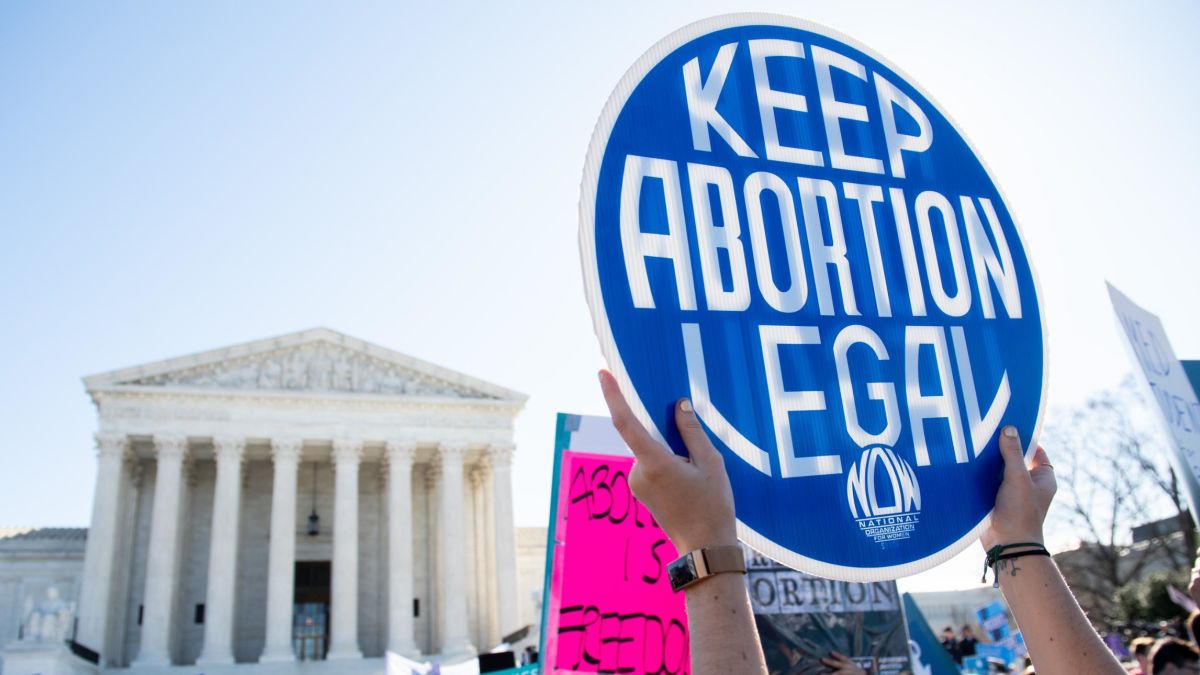The United States Supreme Court formally denied a request by abortion providers in Texas to freeze a state law that bans abortions after six weeks of gestation. The president of the court, John Roberts, joined the three dissenting liberal justices.
The court’s move means that the law, which is one of the strictest in the country and prohibits abortion before many people know they are pregnant, will remain on the books.
The law allows private citizens to bring civil lawsuits against anyone who assists a pregnant person seeking an abortion in violation of the prohibition.
In an unsigned opinion, the majority wrote that while the clinics had raised “serious doubts about the constitutionality of Texas law,” they had not met a burden that would allow the court to block it at this time due to “complexity” and “novel” procedural issues.
The majority emphasized that they had not reached a conclusion on the constitutionality of the law – despite the fact that the order came almost 24 hours after the law went into effect, one of the strictest restrictions on abortion since the historic ruling in Roe v. Wade from 1973.
“In particular, this order is not based on any finding about the constitutionality of Texas law and in no way limits other procedurally appropriate challenges to Texas law, including in Texas state courts,” the majority wrote.
There were several disagreements. In one, Judge Sonia Sotomayor, along with her two Liberal colleagues, called the order of the majority “impressive”.
“Submitted with a request to impose a flagrantly unconstitutional law designed to prohibit women from exercising their constitutional rights and evade judicial scrutiny, most judges have chosen to bury their heads in the sand,” Sotomayor wrote.
“No federal appeals court has upheld such a comprehensive ban on abortions prior to feasibility under current law,” he wrote. “Taken together, the Act is an impressive act of defiance of the Constitution, the precedents of this Court, and the rights of women seeking abortions throughout Texas.”
Under normal circumstances, a dissenting judge with the formula “I respectfully dissent”. Sotomayor simply wrote: “I disagree,” revealing his deep frustration.
“The Court should not be content to ignore its constitutional obligations to protect not only the rights of women, but also the sanctity of their precedents and the rule of law,” she said.
Judge Stephen Breyer also “respectfully” omitted his dissent.
After it went into effect Wednesday morning, Texas clinics drastically limited their services. Whole Woman’s Health, which operates four clinics in Texas, said it offers abortion services “only if no embryonic or fetal heart activity is detected on ultrasound,” according to a spokesperson, and several other providers are taking that limited approach as well.
Roberts disagrees and says the court needed more time
Judge Roberts said he voted to block the law for now to give the court more time to consider the unusual statute.
Roberts said the state Legislature had imposed a “ban on abortions after approximately six weeks” and then “essentially delegated the application of that ban to the general population” with the consequence of isolating the state from responsibility for enforcing the law.
The law was designed to make it much more difficult to file a pre-enforcement challenge because there are no regular government officials to hold accountable in court.
The law allows anyone, as long as they are not a government official, to file a civil lawsuit in state court against a provider accused of violating the prohibition, regardless of whether the person filing the lawsuit has any connection to the abortion being seeks.
If they prevail, they are entitled to at least $10,000 in damages, and the law is structured to be especially costly for clinics that are the subject of enforcement action. It prohibits clinics from recovering attorneys’ fees from rivals in court, even if a judge sides with the provider in the lawsuit.
The measure also prevents clinics from seeking to transfer cases to places more convenient for them, unless they have the agreement of their opponents.
The future of Roe v. Wade
But by allowing the law to take effect, the conservative majority may have already signaled whether it is prepared to reverse or at least undermine Roe v. Wade, the ruling that declared the constitutional right of women to end a pregnancy.
Roberts’ dissent probably indicates divisions to come.
“Among conservatives alone, Chief Justice Roberts calls Texas law for what it is: a transparent attempt not only to undermine Roe, but to make it more difficult to block such a restriction,” said Steve Vladeck, judicial analyst. Citizen Free Press and professor at the University of Texas School of Law.
“It’s a pretty powerful sign that he, at least, is not ready to nullify Roe,” added Vladeck. “But the million dollar question posed by the 5-4 vote is whether, when the time comes, any of the other Conservatives will join him.”
Key conservatives like Judge Clarence Thomas have not been shy in the past to voice their opinion on the court’s abortion record. In 2019, Thomas, who has publicly said that Roe made the wrong decision, stated that abortion jurisprudence has “gotten out of hand”.
And last year, Judge Neil Gorsuch did not mince words about the court and abortion, saying, “We have lost our way”.
The three people appointed by President Donald Trump, Gorsuch, Brett Kavanaugh and Amy Coney Barrett, voted with a majority for the Texas law to remain in effect.

